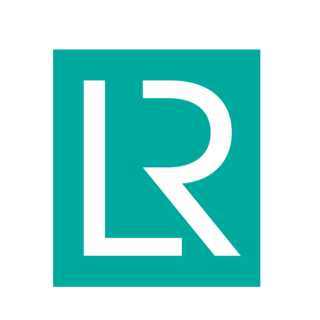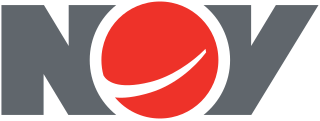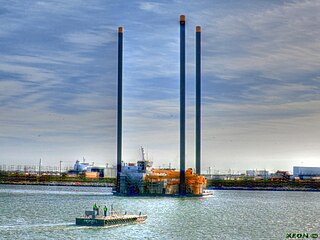
RFA Diligence was a forward repair ship of the Royal Fleet Auxiliary. Launched in 1981 as a support ship for North Sea oil rigs, she was chartered by the British government to support naval activities during the 1982 Falklands War and was later bought outright as a fleet maintenance vessel. She gave assistance to the damaged USS Tripoli and Princeton in the 1991 Gulf War, and to Sri Lanka after the 2005 tsunami. She typically had deployments of 5-8 years in support of the Trafalgar-class submarine on duty east of Suez, with a secondary role as a mothership for British and US minesweepers in the Persian Gulf. Until 2016 Diligence was set to go out of service in 2020. However in August 2016, the UK Ministry of Defence placed an advert for the sale of RFA Diligence. As of 2016 the option for the delivery of future operational maintenance and repair capability for the RFA remained under consideration. However, the 2021 British defence white paper made no specific mention of the need for this capability. In April 2023, it was revealed that the ship was to be scrapped after no suitable buyers materialised, & she was moved out of 3 Basin across to Fareham Trots to await her final journey to the scrapyard.

Professional diving is underwater diving where the divers are paid for their work. Occupational diving has a similar meaning and applications. The procedures are often regulated by legislation and codes of practice as it is an inherently hazardous occupation and the diver works as a member of a team. Due to the dangerous nature of some professional diving operations, specialized equipment such as an on-site hyperbaric chamber and diver-to-surface communication system is often required by law, and the mode of diving for some applications may be regulated.

Packaging is the science, art and technology of enclosing or protecting products for distribution, storage, sale, and use. Packaging also refers to the process of designing, evaluating, and producing packages. Packaging can be described as a coordinated system of preparing goods for transport, warehousing, logistics, sale, and end use. Packaging contains, protects, preserves, transports, informs, and sells. In many countries it is fully integrated into government, business, institutional, industrial, and for personal use.

Lloyd's Register Group Limited, trading as Lloyd's Register (LR), is a technical and professional services organisation and a maritime classification society, wholly owned by the Lloyd’s Register Foundation, a UK charity dedicated to research and education in science and engineering. The organisation dates to 1760. Its stated aims are to enhance the safety of life, property, and the environment, by helping its clients to improve the safety and performance of complex projects, supply chains and critical infrastructure.
Navantia is a Spanish state-owned shipbuilding company that builds vessels for the military and civil sectors. It is the fifth-largest shipbuilder in Europe and the ninth-largest in the world. The company is the result of the segregation of the military assets of the IZAR Group in 2005. The company designs, builds, and supports all types of surface vessels, submarines, and systems. In addition, it is diversifying into new markets such as renewable energy, the offshore industry, and naval services.
Integrated logistics support (ILS) is a technology in the system engineering to lower a product life cycle cost and decrease demand for logistics by the maintenance system optimization to ease the product support. Although originally developed for military purposes, it is also widely used in commercial customer service organisations.

NOV Inc., formerly National Oilwell Varco, is an American multinational corporation based in Houston, Texas. It is a worldwide provider of equipment and components used in oil and gas drilling and production operations, oilfield services, and supply chain integration services to the upstream oil and gas industry. The company conducts operations in more than 500 locations across six continents, operating through three reporting segments: Rig Technologies, Wellbore Technologies, and Completion & Production Solutions.

The International Register of Shipping or IS was established in 1993, and is an independent classification society which provides classification, certification, verification and advisory services. The International Register of Shipping also offers consulting services well suited for the shipping and offshore industry.

A wellhead is the component at the surface of an oil or gas well that provides the structural and pressure-containing interface for the drilling and production equipment.

The American Bureau of Shipping (ABS) is an American maritime classification society established in 1862. Its stated mission to promote the security of life, property, and the natural environment, primarily through the development and verification of standards for the design, construction and operational maintenance of marine and offshore assets.

A liftboat is a self-propelled, self-elevating vessel used in support of various offshore mineral exploration and production or offshore construction activities. A liftboat has a relatively large open deck to accommodate equipment and supplies, and the capability of raising its hull clear of the water on its own legs so as to provide a stable platform from which maintenance and construction work may be conducted.
Materials management is a core supply chain function and includes supply chain planning and supply chain execution capabilities. Specifically, materials management is the capability firms use to plan total material requirements. The material requirements are communicated to procurement and other functions for sourcing. Materials management is also responsible for determining the amount of material to be deployed at each stocking location across the supply chain, establishing material replenishment plans, determining inventory levels to hold for each type of inventory, and communicating information regarding material needs throughout the extended supply chain.
Subsea technology involves fully submerged ocean equipment, operations, or applications, especially when some distance offshore, in deep ocean waters, or on the seabed. The term subsea is frequently used in connection with oceanography, marine or ocean engineering, ocean exploration, remotely operated vehicle (ROVs) autonomous underwater vehicles (AUVs), submarine communications or power cables, seafloor mineral mining, oil and gas, and offshore wind power.
Project engineering includes all parts of the design of manufacturing or processing facilities, either new or modifications to and expansions of existing facilities. A "project" consists of a coordinated series of activities or tasks performed by engineers, designers, drafters and others from one or more engineering disciplines or departments. Project tasks consist of such things as performing calculations, writing specifications, preparing bids, reviewing equipment proposals and evaluating or selecting equipment and preparing various lists, such as equipment and materials lists, and creating drawings such as electrical, piping and instrumentation diagrams, physical layouts and other drawings used in design and construction. A small project may be under the direction of a project engineer. Large projects are typically under the direction of a project manager or management team. Some facilities have in house staff to handle small projects, while some major companies have a department that does internal project engineering. Large projects are typically contracted out to engineering companies. Staffing at engineering companies varies according to the work load and duration of employment may only last until an individual's tasks are completed.
A specification often refers to a set of documented requirements to be satisfied by a material, design, product, or service. A specification is often a type of technical standard.
Indian Register of Shipping (IRClass) is an internationally recognised, independent ship classification society, founded in India in 1975. It is a public limited company incorporated under Section 25 of the Indian Companies Act 1956 (Section 8 of Indian Companies Act 2013). It is a Non-Profit organisation, Public undertaking and a member of the 12 member International Association of Classification Societies (IACS). It was inducted into IACS along with Croatian Register of Shipping (CRS) and Polish Register of Shipping (PRS).

Grup Servicii Petroliere is a Romanian company providing offshore integrated services for oil and gas industry. The company, established in 2004, is a member of UPETROM Group.

Mechanical systems drawing is a type of technical drawing that shows information about heating, ventilating, air conditioning and transportation around the building. It is a powerful tool that helps analyze complex systems. These drawings are often a set of detailed drawings used for construction projects; it is a requirement for all HVAC work. They are based on the floor and reflected ceiling plans of the architect. After the mechanical drawings are complete, they become part of the construction drawings, which is then used to apply for a building permit. They are also used to determine the price of the project.
Tool management is needed in metalworking so that the information regarding the tools on hand can be uniformly organized and integrated. The information is stored in a database and is registered and applied using tool management. Tool data management consists of specific data fields, graphics and parameters that are essential in production, as opposed to managing general production equipment.














